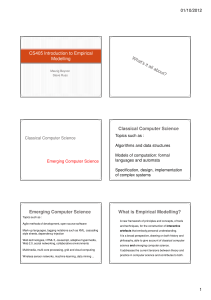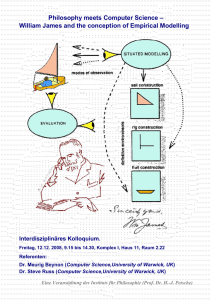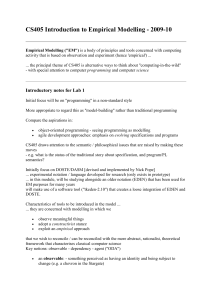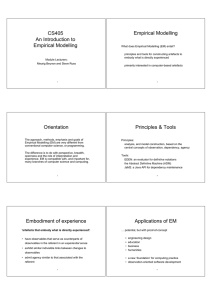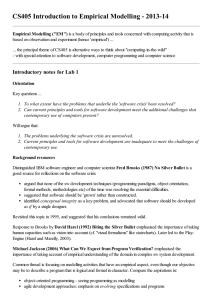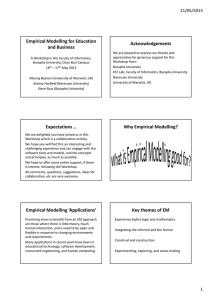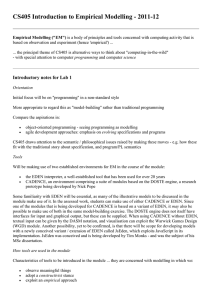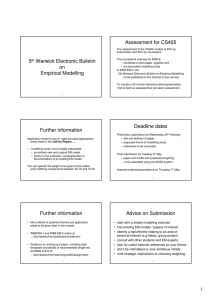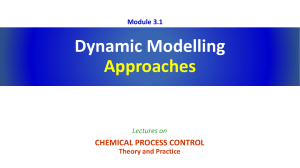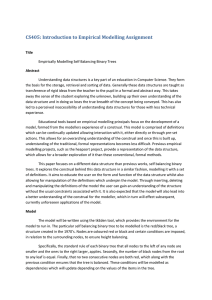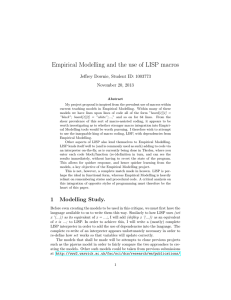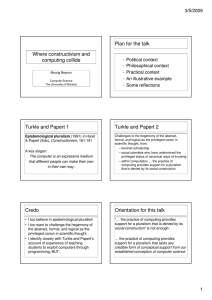CS405 Introduction to Empirical Modelling Interactive Environments By way of orientation......
advertisement
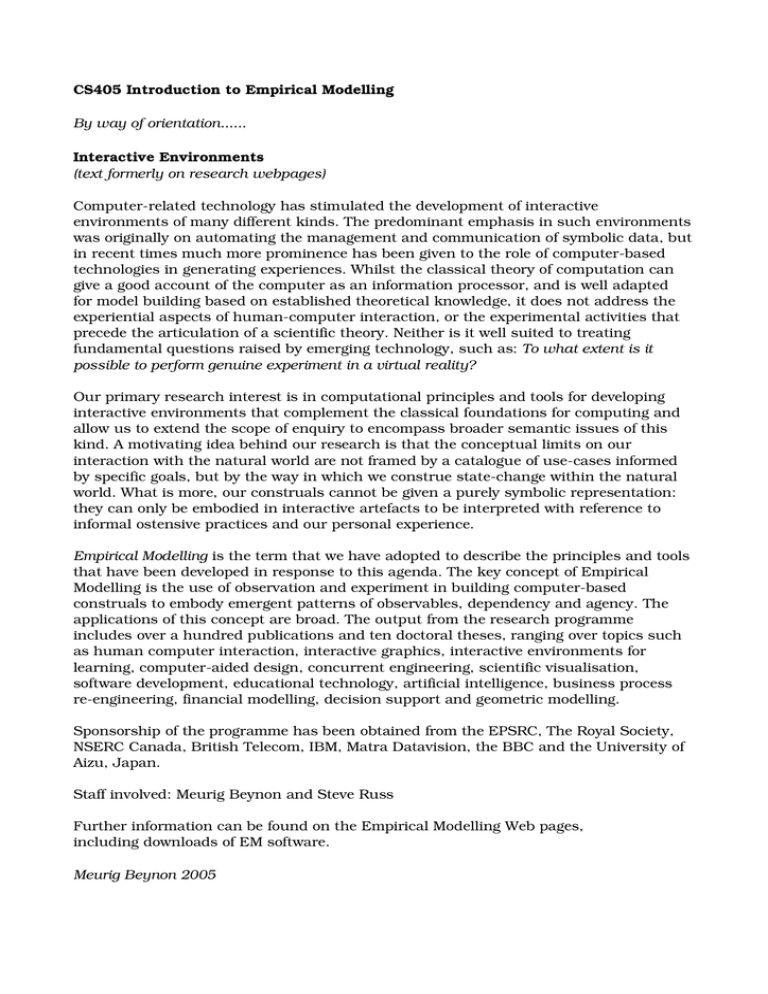
CS405 Introduction to Empirical Modelling By way of orientation...... Interactive Environments (text formerly on research webpages) Computer-related technology has stimulated the development of interactive environments of many different kinds. The predominant emphasis in such environments was originally on automating the management and communication of symbolic data, but in recent times much more prominence has been given to the role of computer-based technologies in generating experiences. Whilst the classical theory of computation can give a good account of the computer as an information processor, and is well adapted for model building based on established theoretical knowledge, it does not address the experiential aspects of human-computer interaction, or the experimental activities that precede the articulation of a scientific theory. Neither is it well suited to treating fundamental questions raised by emerging technology, such as: To what extent is it possible to perform genuine experiment in a virtual reality? Our primary research interest is in computational principles and tools for developing interactive environments that complement the classical foundations for computing and allow us to extend the scope of enquiry to encompass broader semantic issues of this kind. A motivating idea behind our research is that the conceptual limits on our interaction with the natural world are not framed by a catalogue of use-cases informed by specific goals, but by the way in which we construe state-change within the natural world. What is more, our construals cannot be given a purely symbolic representation: they can only be embodied in interactive artefacts to be interpreted with reference to informal ostensive practices and our personal experience. Empirical Modelling is the term that we have adopted to describe the principles and tools that have been developed in response to this agenda. The key concept of Empirical Modelling is the use of observation and experiment in building computer-based construals to embody emergent patterns of observables, dependency and agency. The applications of this concept are broad. The output from the research programme includes over a hundred publications and ten doctoral theses, ranging over topics such as human computer interaction, interactive graphics, interactive environments for learning, computer-aided design, concurrent engineering, scientific visualisation, software development, educational technology, artificial intelligence, business process re-engineering, financial modelling, decision support and geometric modelling. Sponsorship of the programme has been obtained from the EPSRC, The Royal Society, NSERC Canada, British Telecom, IBM, Matra Datavision, the BBC and the University of Aizu, Japan. Staff involved: Meurig Beynon and Steve Russ Further information can be found on the Empirical Modelling Web pages, including downloads of EM software. Meurig Beynon 2005
